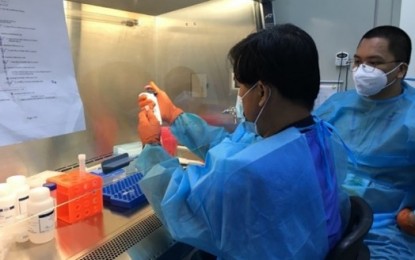News
PH, US complete P1.1-B program to stop agri pathogens

MANILA – The Philippine and United States governments have concluded a five-year biological threat capacity building partnership valued at nearly PHP1.1 billion (approximately USD22.7 million), the US Embassy in Manila announced Thursday.
The US Defense Threat Reduction Agency’s (DTRA) Biological Threat Reduction Program (BTRP) and the Department of Agriculture (DA) launched the program in September 2016, through which seven Regional Animal Disease Diagnostic Laboratories were constructed and renovated across the country.
It also funded 15 bio-safety and security courses, 26 quality management courses, four table-top exercises, 27 laboratory staff workshops, and equipment fielding and training at the Research Institute for Tropical Medicine.
The partnership likewise addressed several emerging challenges within the agriculture sector, including detection and surveillance of Avian Influenza and African swine fever (ASF).
“We are proud of the work this partnership has achieved since 2016 to strengthen the Philippines’ capacity and capability to detect, diagnose, and report dangerous pathogens,” said Dr. Ada Bacetty, DTRA’s BTRP chief.
“Now that the Philippine government is operating these labs at full capacity, we look forward to the next opportunity to work with our critical Philippine friends, partners, and allies,” the official added.
The US Embassy in Manila said these laboratories would serve as a “central line of defense” against dangerous pathogens affecting agriculture, including those that have the potential to affect humans.
“I can safely say that the desired outcome of the BSS (Bio-Safety and Security) project was fulfilled,” said William Medrano, Undersecretary for Livestock and chairman of the DA BSS Project Steering Committee.
“We were able to modernize some laboratories and we were able to institutionalize quality management, which is very important when you manage laboratories,” he added.
According to the embassy, future cooperation between BTRP and the Philippines will expand to include the human health sector.





















